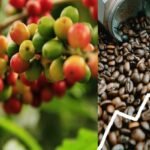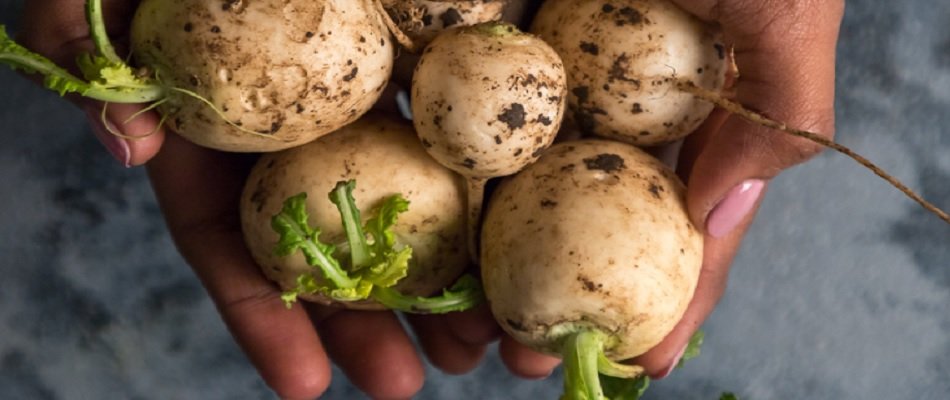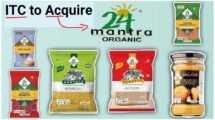Zama Organics startup takes a farm-centric approach and allows farmers to set their own prices
In its attempts to provide sustainable and clean eating options, Mumbai-based Zama Organics began on a small scale, providing fresh and packaged organic goods in Mumbai while delivering the fruit and vegetables to Pune on weekends. It has now expanded to serve 200 homes on a regular basis.
According to its Founder Shriya Naheta, the company’s packaged grocery products, including grains, pulses, spices, dried herbs, nuts, oil, and sugar, are available countrywide via e-commerce platforms and brick-and-mortar retail stores.
Also Read: Govt provided financial support to farmers to encourage organic farming
‘At the moment, we have over 60 stores across 16 cities in India, says the company. Zama Organics offers fresh organically grown food to the residents of Mumbai through a network of over 50,000 certified organic farmers across India,’ she said.
Potential of the Market
Zama Organics was founded in 2016 and formally launched in 2017, shortly after Naheta’s graduation from the University of South California, Los Angeles, with a degree in international relations and business. She chose to travel with her sister and business partner, who were sourcing foraged products for their ingredient-driven restaurant across the country.
‘India boasts the world’s largest number of organic farmers. The potential of this market, as well as the fact that the more I learned about the benefits (during the first trip), the more persuaded I became of my love for organic products, played a major role in the founding of Zama Organics,’ says the founder.
This aided the company’s produce sourcing. As it tried to expand its network of farmers, it discovered that the vast majority of them were either organic producers or were in the process of becoming so. Some were recognized under the National Program for Organic Production (NPOP), while others had certificates from the participatory guarantee system (PGS), a quality assurance program.
‘However, many of the farmers lacked the requisite certifications and paperwork. We began by aiding them in obtaining their PGS certificates, which we later upgraded to NPOP, with the certainty of increasing amounts following the organic conversion process,’ Naheta stated.
Campaigns to raise awareness in the states
Zama’s efforts, on the other hand, were focused on finding farmers who were already practising organic farming rather than converting non-organic farmers. ‘Additionally, Union and State governments like Uttarakhand and Meghalaya are already increasing awareness and education about the method and are attempting to move to fully organic states,’ she added.
Zama’s farmer network spans the length and breadth of India. ‘Seasonal produce such as mangoes, lychees, and apples are sourced from farmers all throughout the country, while fresh fruit is primarily sourced from Maharashtra. Overall, our groceries are obtained across India, from Assam black rice in the north to red rice in the south,’ stated the company’s founder.
Farmers provide the organization with a wide range of products, including fruits, vegetables, herbs, spices, and oils, to name a few. Farmers supply the company with a wide variety of products, including fruits, vegetables, herbs, spices, and oils, to name a few.
Two-tiered verification
When asked if various produce is sourced through contract farming, Naheta stated that the firm takes a farm-centric method and allows farmers to set their own prices. ‘We give a rough estimate of the required produce on a quarterly basis because the price is variable from season to season,’ she said of determining prices.
Because organic products have a shorter lifespan and all fruits and vegetables are freshly harvested, Zama maintains a two-level check, with the first level being done on the farm and the final sorting and quality check taking place at the warehouse before packaging the order.
‘Additionally, with the exception of seasonal items, all of our fresh produce is sourced from as close to Mumbai as possible to maintain quality – primarily Nashik and Pune,’ Naheta explained.
Also Read: Organic India expands its presence to organic staples, commodities, food products
On its website and app for delivery in Mumbai, Zama Organics owns private labels and has over 200 stock-keeping units for fresh groceries and staples. Its e-market services are available in major cities such as Bengaluru, Goa, Delhi, Hyderabad, and Gurugram, but no fresh products are available.
Zama would therefore soon expand to Pune with QR codes integration that will allow customers to trace the origin of the product.


















Add Comment